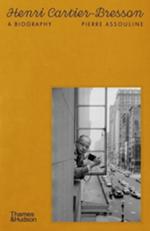The twentieth century was that of the image, and the legendary photographer Henri Cartier-Bresson, born in 1908, was the eye of the century. His life story and the interpretation of his work reveal first and foremost the history of a vision. He was always on the spot, the great opportunist, seizing life’s historic events as they happened. As he traversed the century, his eclectic eye focused on the fascination of Africa in the 1920s, the tragic fate of the Spanish Republicans, the Liberation of Paris, the weariness of Gandhi a few hours before his assassination, and the victory of the Chinese communists. He was assistant to Jean Renoir on three major films, and one of the founders of Magnum, the most famous of all photographers’ agencies. It was he who fixed forever the features of famous contemporaries: Mauriac mysteriously levitating; Giacometti and Sartre as characters from their own works; Faulkner, Camus and countless others, their portraits captured for eternity at the decisive moment. An intensely private individual, Cartier-Bresson nonetheless took Pierre Assouline into his confidence over a number of years, discussing such subjects as his youthful devotion to surrealism, his lifelong passion for drawing, his experience of war, his friends and the women in his life. He even opened up his invaluable archives. This sensitive biography is the result of the meeting of two minds, revealed in much the same way and with the same truth as one of Cartier-Bresson’s outstanding, inimitable photographs.

Henri Cartier-Bresson : a biography
ISBN: 9780500297957
Format: Paperback
Publisher: Thames And Hudson Ltd (ADS)
Origin: GB
Release Date: December, 2024


